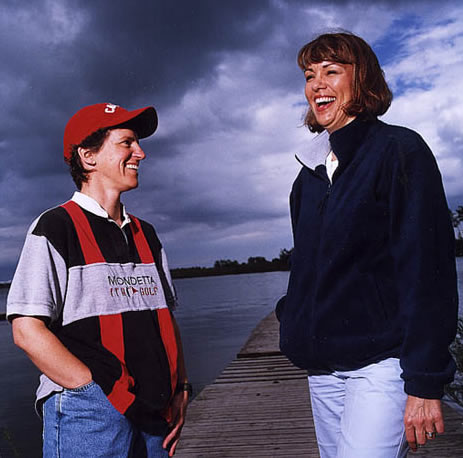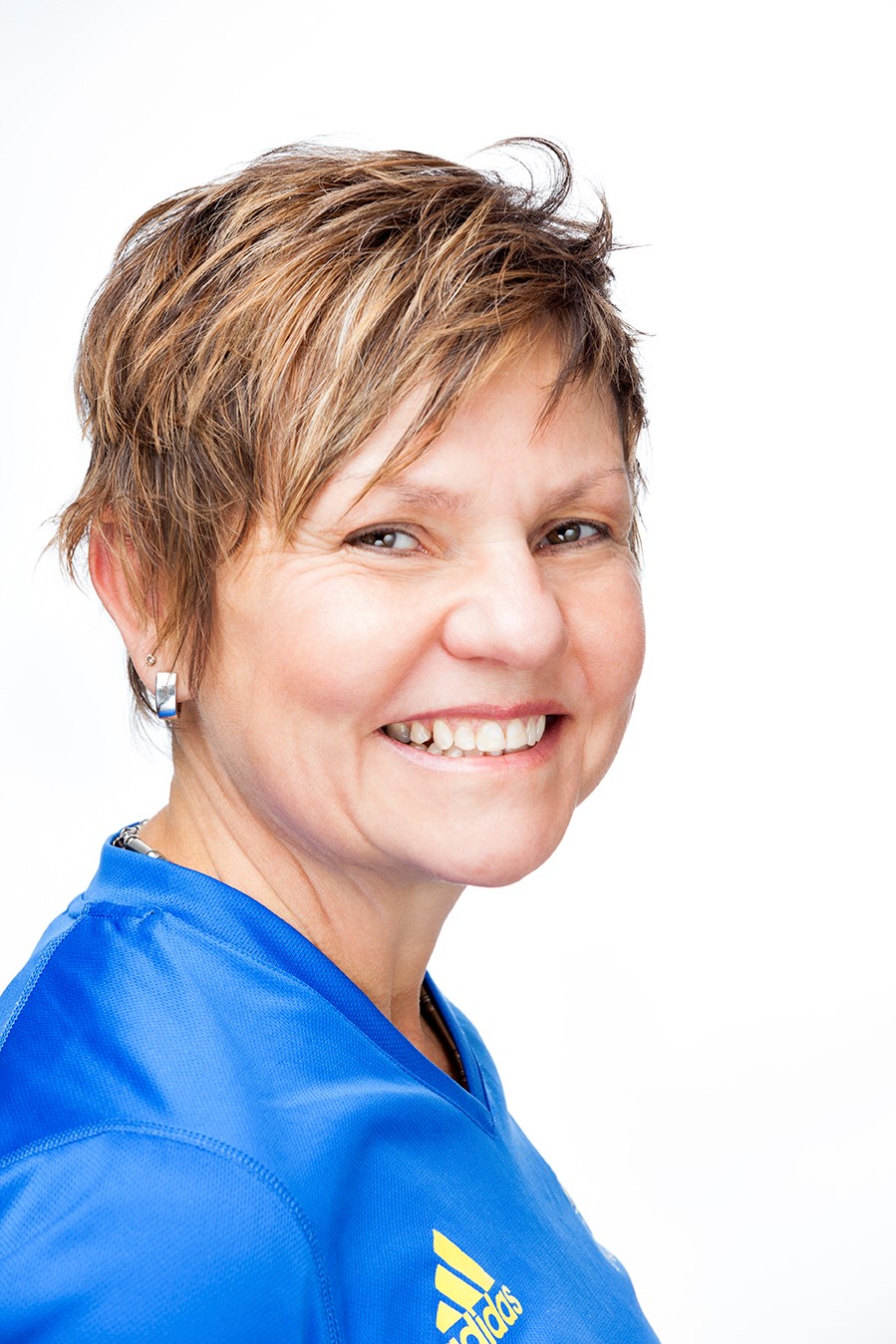Two-time Olympic gold medallist Kay Worthington (BA 1983 UC) remembers the car, a 1965 Pontiac Parisienne convertible that she drove to dawn rowing practice. “I’d be bombing down Bayview Avenue with the roof down and I’d meet this caravan of women biking to rowing practice at the lake – and Karen [Pitre] would be on her moped. They’d all pile in – there would be eight of us in that car, a moped and bikes sticking out everywhere.”
Karen (Wright) Pitre (BASc 1983), executive vice-president of Toronto’s recent 2008 Olympic bid committee, remembers the house, a dilapidated nightmare that later became home to their group of rowing friends, dubbed the Major Street Gang.
The tough times were the best of times for the two friends, who became close while rowing for U of T’s team in 1979, its third year of existence. They struggled with the university and the men’s team for boats, funding and respect. They also juggled intense schedules. Worthington was training for the national team while studying international relations. Pitre participated in two varsity sports – rowing and ice hockey – while studying chemical engineering. “The very best friendships are forged from adversity,” says Worthington.
After university, it was a challenge to stay connected as Worthington focused on rowing, going to three Olympics. She came up empty-handed before finally striking gold twice in Barcelona in 1992. After that, she became a trader in Manhattan and married Mike Teti, the head coach of the U.S. men’s Olympic rowing team. Pitre married Mike Pitre (BASc 1982), earned a law degree, had three children and became a political strategist. She has recently been working as a consultant with the Canadian Association for the Advancement of Women in Sports. But the two still get together at annual Christmas reunions with the Major Street Gang, and athletics remain their touchstone of connection and understanding.
Watching Worthington win gold in the women’s fours and eights was “hugely emotional,” says Pitre. “We were a wreck, watching it on TV. One thing you know from having lived and trained with someone is how hard they work, what they sacrificed.”
In turn, Worthington has a good idea what Pitre went through when Toronto’s Olympic bid failed in the summer of 2001. “I know she was disappointed, but Karen doesn’t talk about stuff like that. She just picks herself up and moves on to the next project. She does what she does because she believes in it strongly.”
“When we started, we knew China had the edge [in getting the Olympics],” says Pitre. “We said there has to be a reason in and of itself for the bid. For me, that was waking Toronto up to its 1,000 acres of derelict waterfront.” Pitre is now part of a team that manages Toronto’s new waterfront redevelopment corporation.
“In sports, you learn how to face defeat,” she says. “That’s why sports are such a lesson in life.”
Recent Posts
U of T’s Feminist Sports Club Is Here to Bend the Rules
The group invites non-athletes to try their hand at games like dodgeball and basketball in a fun – and distinctly supportive – atmosphere
From Mental Health Studies to Michelin Guide
U of T Scarborough alum Ambica Jain’s unexpected path to restaurant success
A Blueprint for Global Prosperity
Researchers across U of T are banding together to help the United Nations meet its 17 sustainable development goals






